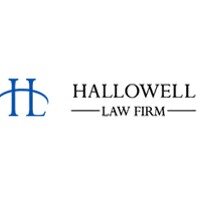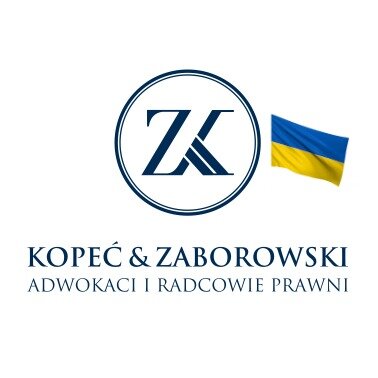Best Private Equity Lawyers in Warsaw
Share your needs with us, get contacted by law firms.
Free. Takes 2 min.
List of the best lawyers in Warsaw, Poland
About Private Equity Law in Warsaw, Poland
Private Equity (PE) refers to the practice of investing in privately held companies or taking public companies private in order to restructure and improve their value before selling them at a profit. In Warsaw, Poland's capital and financial hub, private equity transactions have grown significantly in recent years, attracting both domestic and international investors. Private equity investments often involve complex negotiations, regulatory considerations, and cross-border elements.
The legal landscape in Warsaw for private equity is shaped by Polish law as well as European Union regulations. Specialized lawyers play a crucial role in facilitating deals, ensuring regulatory compliance, and protecting clients' interests throughout the investment lifecycle.
Why You May Need a Lawyer
Engaging in private equity deals in Warsaw, Poland can present various complex scenarios where legal support is essential. Some common situations include:
- Drafting or reviewing investment agreements and term sheets
- Conducting due diligence on target companies
- Structuring transactions to mitigate risks and optimize tax efficiency
- Negotiating shareholder agreements and management incentive plans
- Dealing with regulatory filings and antitrust clearance
- Handling cross-border transaction elements and foreign investment rules
- Managing disputes among investors, founders, or other stakeholders
- Ensuring compliance with local laws and reporting obligations
A skilled private equity lawyer provides advice that helps avoid costly mistakes, ensures transactions are legally sound, and protects all parties' interests throughout the investment process.
Local Laws Overview
Warsaw's private equity transactions are governed primarily by Polish civil, commercial, and company law, especially the Commercial Companies Code. The legal environment also incorporates aspects of EU law, particularly regarding competition and mergers. Key legal considerations include:
- Company Structures: Most private equity investments are made in limited liability companies (spółka z ograniczoną odpowiedzialnością, or sp. z o.o.) or joint-stock companies (spółka akcyjna, or S.A.)
- Regulatory Approvals: Transactions may require notification or approval from regulatory bodies, especially in sectors such as finance or energy, or if certain deal value thresholds are exceeded
- Competition Law: Large deals may require antitrust clearance from the Office of Competition and Consumer Protection (UOKiK)
- Tax Law: Proper structuring is vital to minimize corporate income tax, VAT, and other liabilities
- Labor Law: Employee matters can arise in buyouts or restructurings
- Cross-border Issues: Foreign investments are allowed but may face additional scrutiny or require notification
Having a deep understanding of these legal considerations facilitates smoother transactions and mitigates potential risks.
Frequently Asked Questions
What is a typical private equity investment structure in Poland?
Most private equity investments in Poland are structured through limited liability companies (sp. z o.o.) or joint-stock companies (S.A.). These structures offer flexibility and limited liability protection for investors.
Do foreign investors face restrictions in Warsaw's private equity sector?
Poland generally welcomes foreign investment, but certain sectors such as defense, energy, or media may require additional regulatory clearance or have ownership restrictions.
What due diligence is required in a private equity transaction?
Due diligence typically covers legal, financial, tax, and operational aspects of the target company, including reviewing contracts, assessing liabilities, and ensuring compliance with local laws.
What role does the Office of Competition and Consumer Protection (UOKiK) play?
UOKiK is responsible for antitrust review and approval of certain mergers and acquisitions. Transactions that exceed specific turnover thresholds or affect market competition must be reported for clearance.
Are there any specific tax considerations for private equity in Poland?
Tax structuring is crucial in private equity deals. Poland imposes corporate income tax and may levy taxes on capital gains and dividends. The structure of the transaction can significantly impact tax liabilities.
How are management incentive plans treated in Polish private equity transactions?
Management incentive plans, such as stock options or phantom shares, are becoming more common and must be structured to comply with Polish labor and tax laws.
Can disputes between shareholders or investors be litigated in Polish courts?
Yes, shareholder disputes can be resolved in Polish courts, but it is common to include arbitration clauses in investment agreements for quicker resolution.
How long does a typical private equity transaction take to complete in Warsaw?
The timeline varies depending on the complexity and regulatory requirements but can range from several weeks for smaller deals to several months for more complex or regulated transactions.
Are there any local licensing requirements for private equity funds?
Private equity funds in Poland may be subject to registration and reporting requirements with the Polish Financial Supervision Authority (KNF) if they fall under certain regulatory categories.
What are the most common sectors for private equity investment in Warsaw?
Popular sectors include technology, manufacturing, healthcare, consumer goods, and renewable energy, though opportunities exist across various industries.
Additional Resources
For more information or support related to private equity in Warsaw, Poland, the following organizations and resources can be helpful:
- Polish Private Equity and Venture Capital Association (PSIK): A leading industry body offering guidance and networking for PE professionals
- Office of Competition and Consumer Protection (UOKiK): Regulatory authority for competition and merger clearance
- Polish Financial Supervision Authority (KNF): Regulates financial markets including funds operating in Poland
- Ministry of Development Funds and Regional Policy: Governmental guidance and information for investors
- European Bank for Reconstruction and Development (EBRD): Offers insight and support for cross-border investments involving Poland
Next Steps
If you are considering embarking on a private equity transaction in Warsaw or elsewhere in Poland, it is vital to:
- Identify your objectives and assess potential targets or partners
- Engage a qualified private equity lawyer experienced in Polish and cross-border transactions
- Prepare to conduct thorough due diligence and develop a clear transaction structure
- Ensure all regulatory filings and approvals are handled promptly
- Negotiate robust agreements to protect your interests and mitigate risks
Starting with a legal consultation can clarify your options, highlight potential issues, and provide a roadmap for a successful investment. Reach out to reputable law firms or legal practitioners specializing in private equity for personalized advice tailored to your needs and goals.
Lawzana helps you find the best lawyers and law firms in Warsaw through a curated and pre-screened list of qualified legal professionals. Our platform offers rankings and detailed profiles of attorneys and law firms, allowing you to compare based on practice areas, including Private Equity, experience, and client feedback.
Each profile includes a description of the firm's areas of practice, client reviews, team members and partners, year of establishment, spoken languages, office locations, contact information, social media presence, and any published articles or resources. Most firms on our platform speak English and are experienced in both local and international legal matters.
Get a quote from top-rated law firms in Warsaw, Poland — quickly, securely, and without unnecessary hassle.
Disclaimer:
The information provided on this page is for general informational purposes only and does not constitute legal advice. While we strive to ensure the accuracy and relevance of the content, legal information may change over time, and interpretations of the law can vary. You should always consult with a qualified legal professional for advice specific to your situation.
We disclaim all liability for actions taken or not taken based on the content of this page. If you believe any information is incorrect or outdated, please contact us, and we will review and update it where appropriate.

















